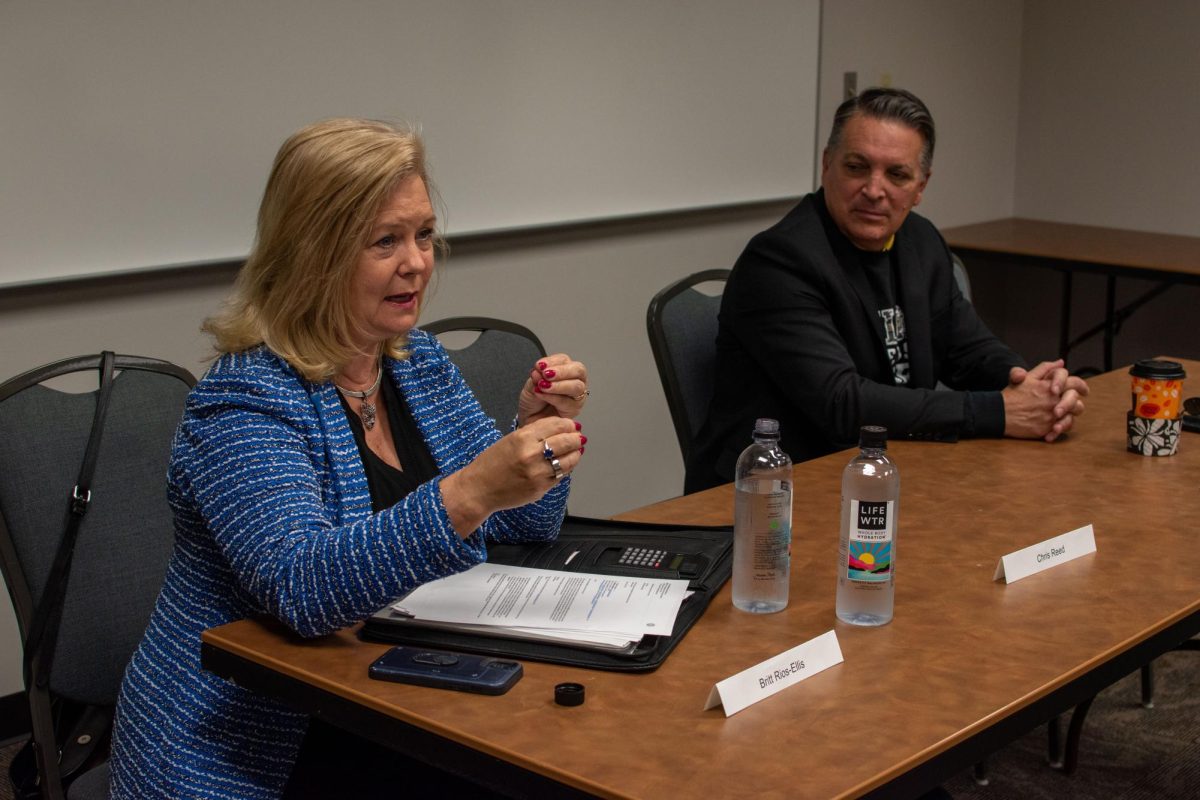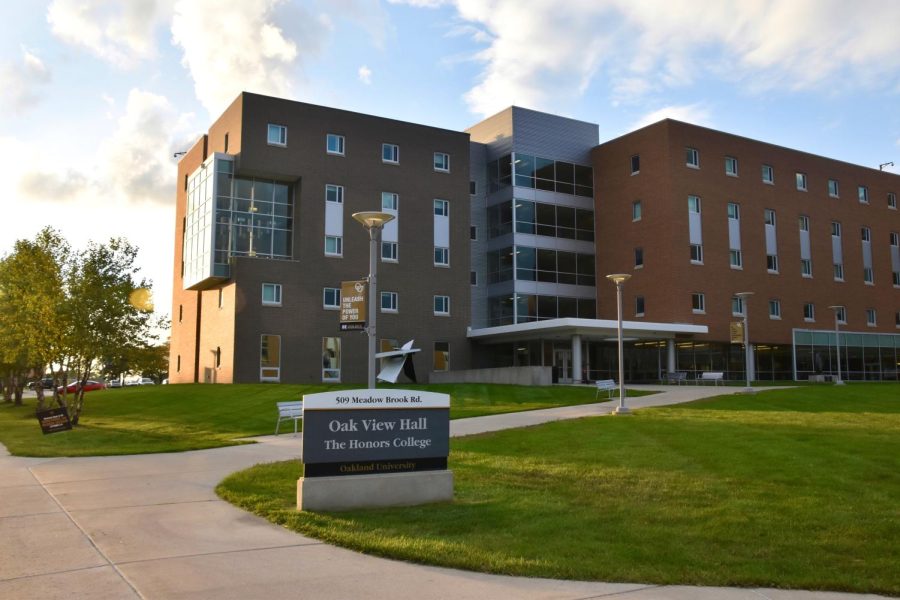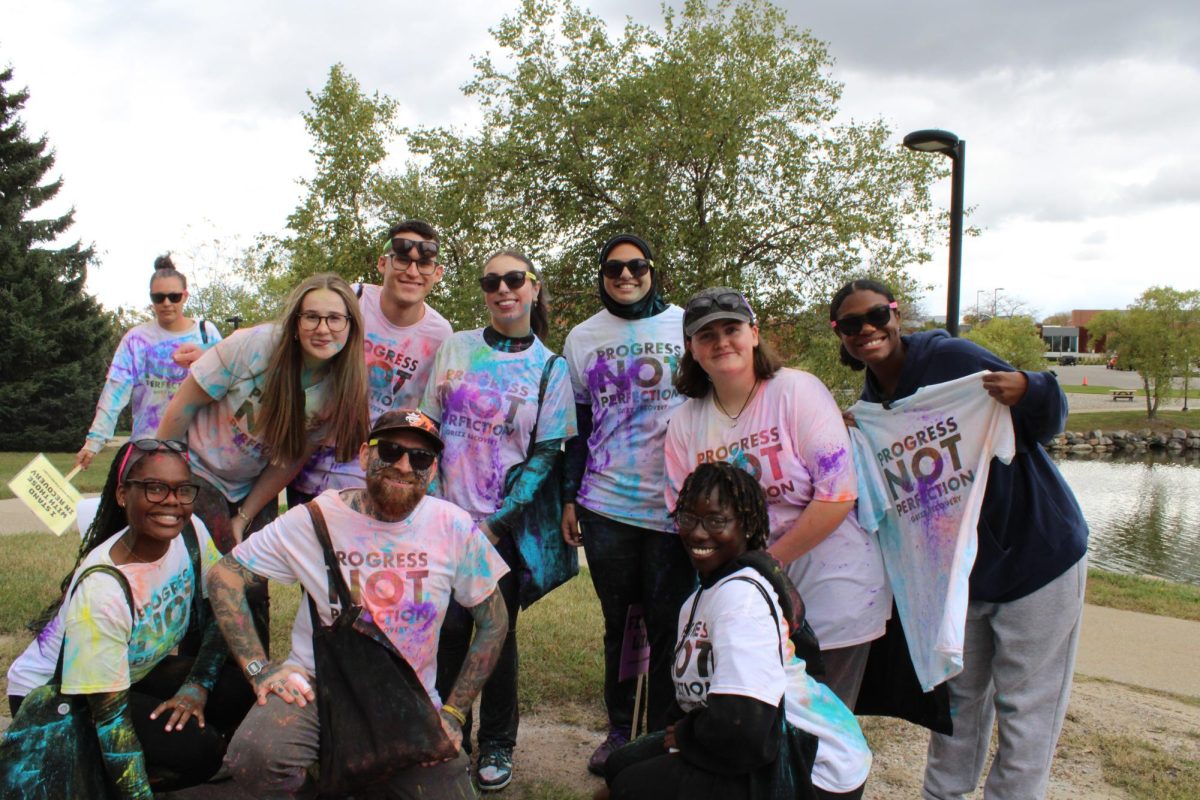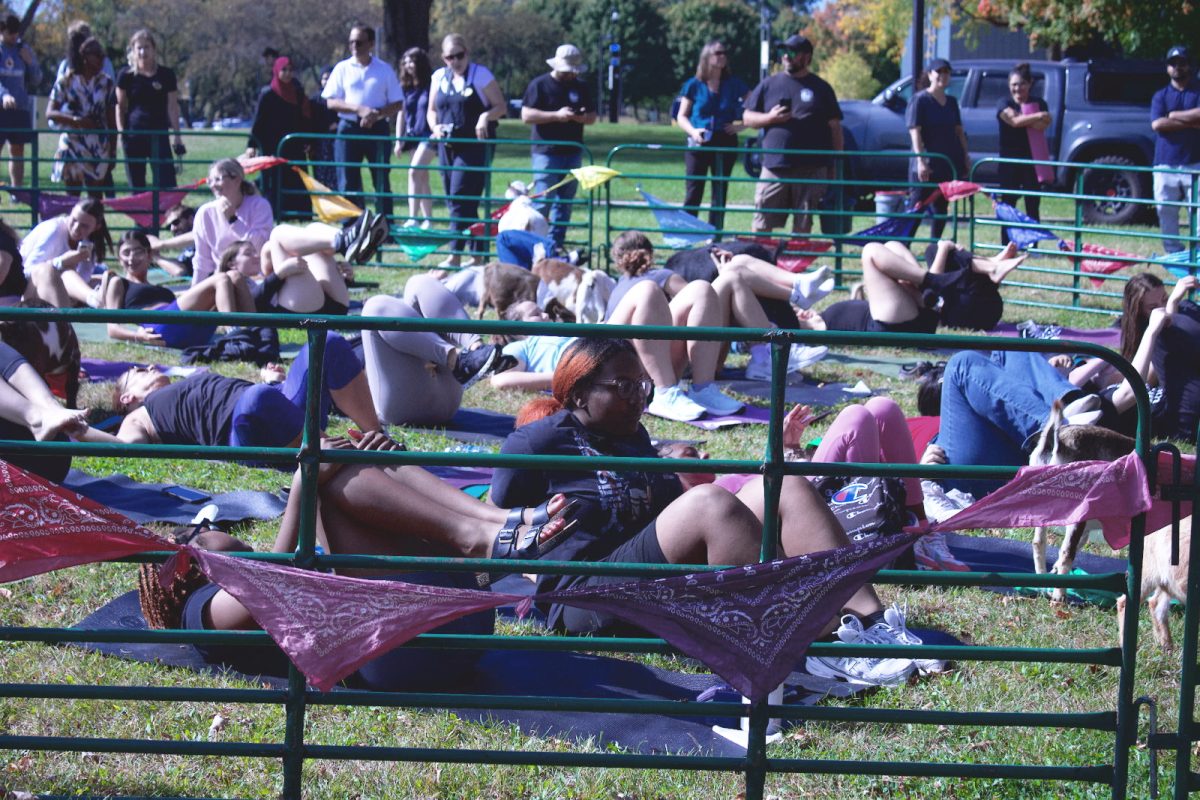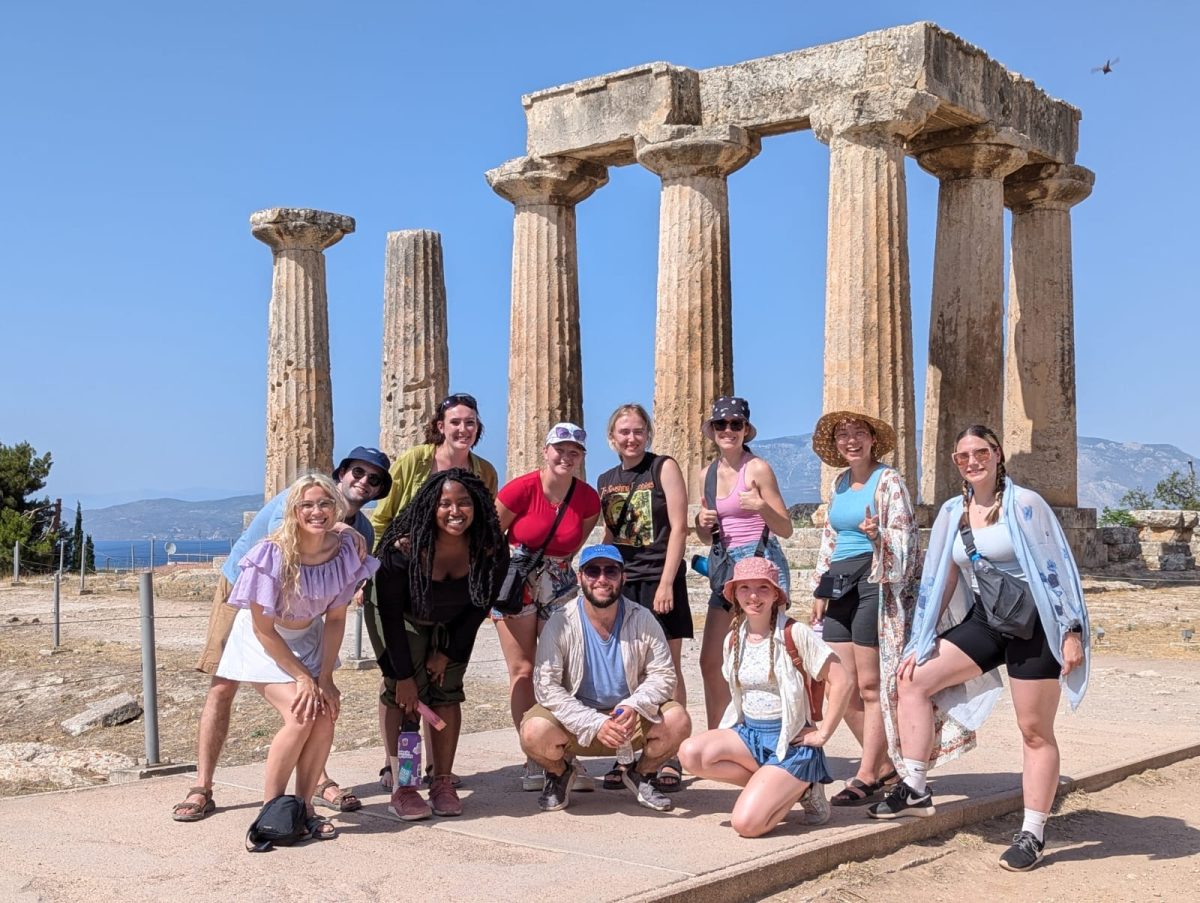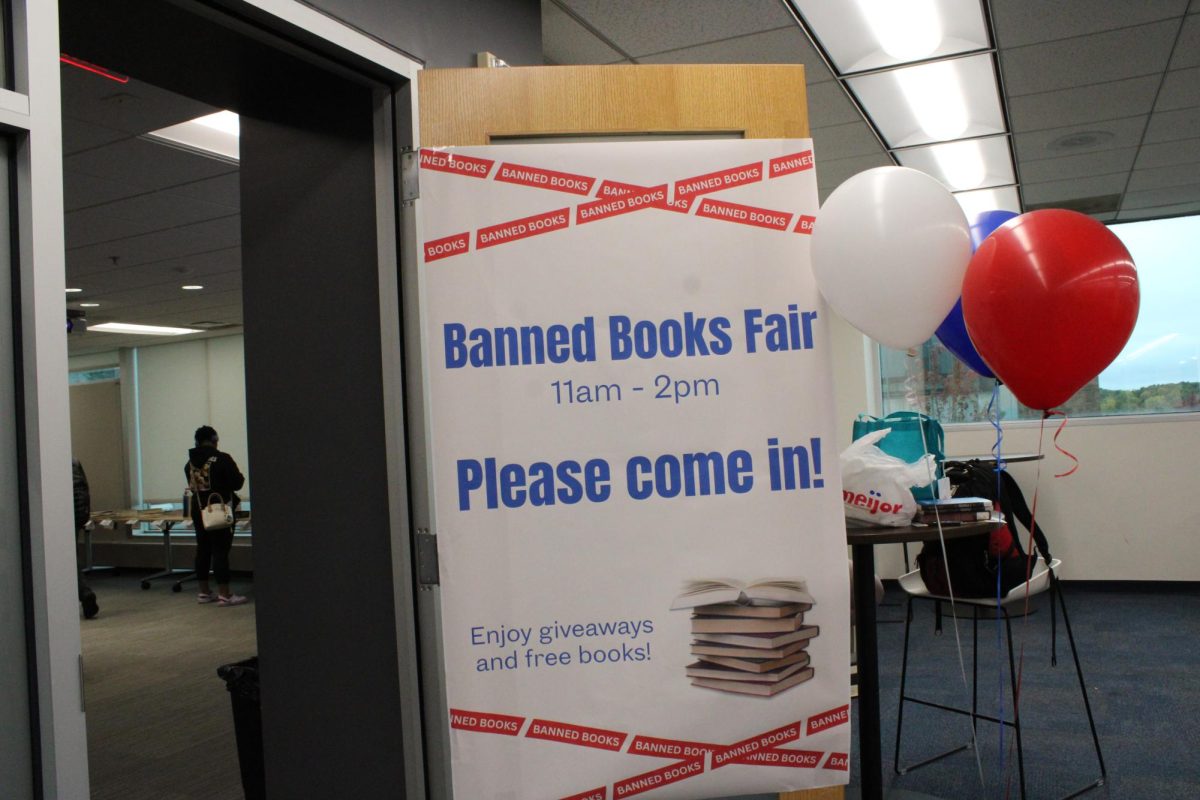As part of Oakland University’s Sustainability Month, the Oakland University Student Congress (OUSC) hosted a Sustainability Town Hall session on Oct. 25 in the Oakland Center (OC) Lake Erie Room.
OUSC Director of Sustainability, Katya Eskander, said the organization hosted the event to bring administration and students in closer proximity.
“Administration and their decisions feel beyond us as students,” Eskander said. “It’s nice to be able to look at them to put a name to the face of the people who decide what’s happening on our campus, in our university.”
The conversation comes after an academic year rife with controversy regarding sustainability on campus — in January, the Board of Trustees (BOT) suspended considerations for East Campus development after community pushback.
The panelists included Vice President for Finance and Administration and Board of Trustees Treasurer Steve Mackey, Oakland Center Director Christopher Reed and Executive Vice President of Academic Affairs and Provost Britt Rios-Ellis.
The attendees discussed, among other things, where OU stands compared to other universities regarding environmentalism. They also discussed food and water accessibility on campus, plans to get the university to net zero carbon emissions and the importance of engaging the OU community and surrounding communities regarding sustainability decisions.
Mackey said that while OU succeeds in many areas related to sustainability, the issue is these successes are not well advertised. Some of the environmental strides the university has taken include the reduction of natural gas consumption by 50%, OU’s carbon neutrality without purchasing carbon credits and the fact the campus generates 68% of its own energy.
Some areas that could be improved, Mackey said, is the university’s work with protecting biopreserves.
“Coming here, I’ve been very encouraged by what I’ve seen within my teams. We are doing a really good job in a lot of areas, and there are some areas we’re not supporting as much as we could,” he said. “The biggest problem I see is that we’re not really telling our story… there’s always more to do, but I do think we are making an impact.”
Additionally, the community discussed plans for the future Director of Sustainability position, announced at the 2023 Michigan Climate Summit held on campus.
The Director of Sustainability position is planned to lead sustainability projects on campus and engage with the campus community on sustainability issues.
Currently, Reed said, it is estimated the role will be filled by this time next year.
“Our goal is that they’re here starting for next fall. So they will start, at the latest, August of ‘24,” he said.
“We want to get the best person we can. We don’t want to rush it,” Ross-Ellis said.
Overall, Mackey said, the future of sustainability efforts on campus is bright following the success of the Strive for 45 campaign. The campaign reached its goal in two years instead of three, giving a budget buffer of $6 million.
“The last several years have been exceptionally difficult financially… we are getting through that now. We are in a much better position now with the sustainability director position coming,” Mackey said. “We’ve got the strategic plan happening [which will] inform a lot of what our priorities are… we have not allocated that [$6 million]. We’re waiting for that strategic plan to come out.
“We’re also working on updating the campus master plan, so that will also help inform where we’re going over the next 10 to 15 years,” Mackey added. “If you look at the current one that was done in 2016, sustainability was kind of a footnote in the plan. I’m charging out to make it really a cornerstone.”
Eskander said the willingness to participate in the session bodes well for the future of two-way communication between the university’s administration and its students.
“Having them feel almost accountable, in a sense, was one thing because of past decisions they’ve made. They have to look at students and explain themselves,” Eskander said. “On the other hand, the fact that they made themselves so available really proves a step in the right direction towards mending the relationships between staff and faculty and admin… it very much felt like they cared about our opinions.”



